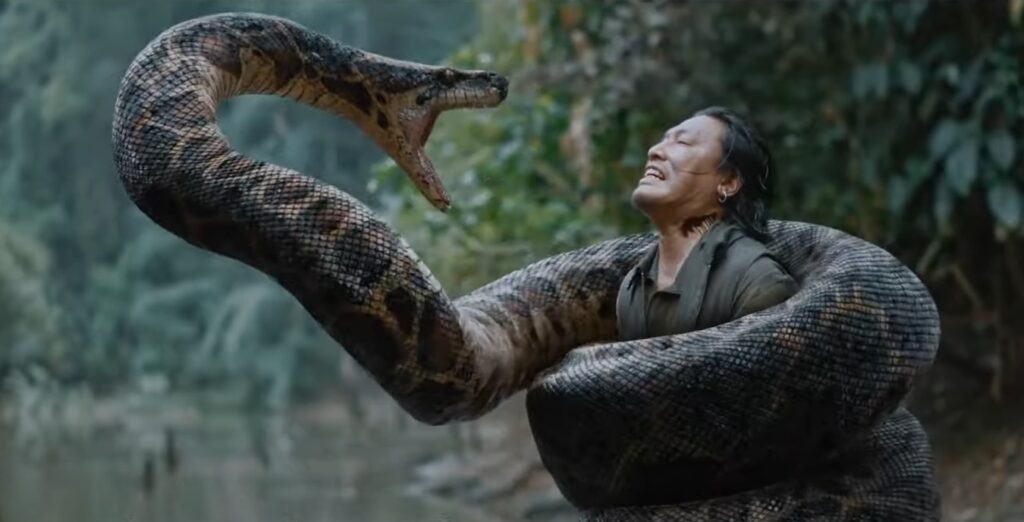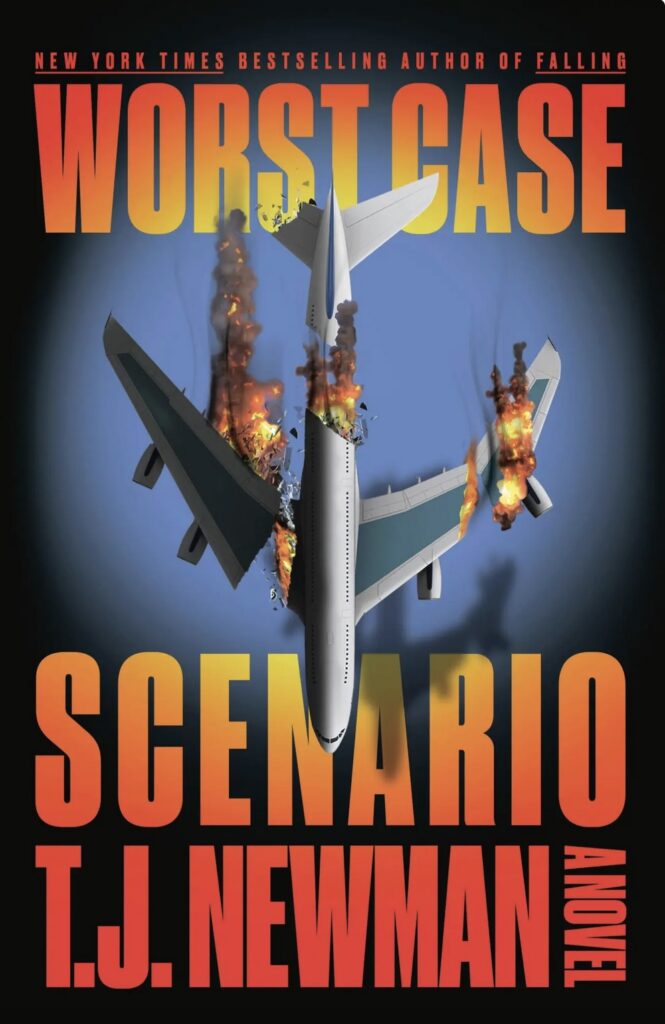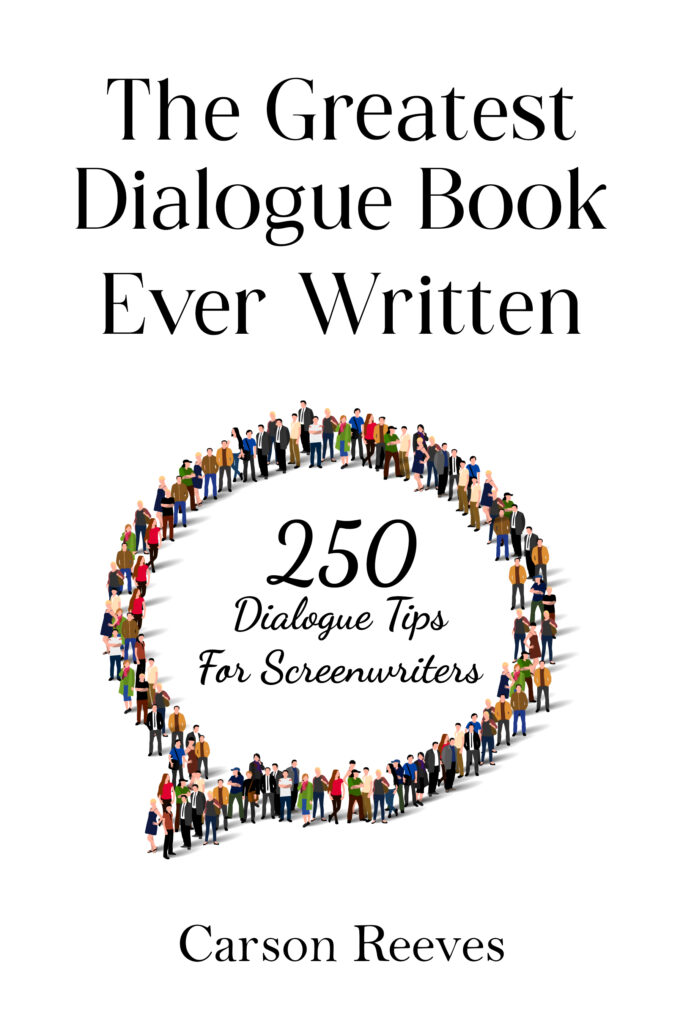SINCE I HAVE NO IDEA IF THE NEWSLETTER IS GETTING TO PEOPLE, I’M JUST GOING TO INCLUDE IT HERE ON THE SITE. ENJOY! AND IF YOU WANT FUTURE NEWSLETTERS, E-MAIL ME AT CARSONREEVES1@GMAIL.COM. THAT’S ASSUMING I CAN GET THEM SENT OUT!

I was talking to an aspiring writer the other day and we got onto the topic of movies, specifically what we’d seen lately. He said that he’d rewatched this old movie that both of us liked and I said to him, “Have you ever read the script for that movie? It’s even better than the film.” What he said next shocked me. “I don’t read scripts.”
I gasped and replied, “What do you mean, you don’t read scripts? Like you don’t read them that often?” He said, no, he’d read maybe three scripts in his entire life and they were all classic film scripts. “You’ve never read a screenplay that hasn’t become a movie yet??” I asked. “No,” he said. “Never.”
This wasn’t the first time I’d heard this from a writer. In fact, I once knew a writer who didn’t just *not read* scripts, he was so uninterested in doing so, he’d go on 20-minute villain monologues about how pointless (and boring) reading scripts was. And he had proof to back it up! He actually sold a screenplay! For mid-to-six figures!

How the heck did that happen? Well, to his credit, he was really good at picking high concepts and injecting GSU (goal, stakes, urgency).
But there was always something off about his writing that I couldn’t put my finger on. The rhythm wasn’t quite there. The sentence structure was slightly odd. And just the whole experience of reading his scripts felt like you were reading a “highlights reel” of a script, ” if that makes sense. His scripts never felt like true screenplays.
Not that I wish any ill will on writers, but I wasn’t surprised to hear that the writer hung it up three years later, failing to experience any more success. You can sometimes get a lucky invite into the game. But it’s hard to stay if you don’t know what you’re doing. People figure that out sooner or later.
I have no doubt that the fact this writer had never read any screenplays before hurt his writing A LOT. Let me explain why.
I’m currently working with an actress who’s writing her first screenplay. It’s a true story about the birth of a particular tech industry. One of the issues she’s running up against is explaining the complicated world of that industry which is clear to her but foreign to us. So I sent her the Sam Bankman-Fried script I reviewed the other day, which did a lousy job of explaining its industry, in order to show her how the lack of properly conveyed exposition makes it hard for a reader to follow along.
It’s only when you experience writing weakness as a reader that it clicks for you what you have to demonstrate in your own scripts. How can you possibly understand how to keep someone interested in your story if you have never read a screenplay that’s kept your interest before? How can you ever understand how to keep someone from getting bored if you yourself have never been bored reading a screenplay before? How can you understand the rhythm of a screenplay if you’ve never been subjected to good screenplay rhythm? How can you know how much information the reader needs about your world if you’ve never read a script that effortlessly disseminates a lot of information?
You can’t just answer, “I can do that because I watch movies” because you’re not yet writing for a movie audience. You are writing for a reader. A series of readers must approve of your script before it can become a movie. So you have to be hip to THAT PERSON’S EXPERIENCE, not the audience member’s experience. And believe me, it’s a different ballgame. Movies are a passive experience. Reading is an ACTIVE experience. Or, to put it bluntly: Reading is harder than watching. So the bar for keeping the person engaged is higher.
I’m not saying you need to read as many scripts as I do. But you need to read at least a couple of scripts a month. Lucky for you, I have some reading material to pass on! I’m giving you four good scripts and two bad ones. You may be wondering why I’m including bad scripts. It’s because you need to know what types of things frustrate readers. You can’t write a good script unless you’ve been on the receiving end of a bad one. Because those are the scripts that drill into your head, “I’m going to make sure I never do that myself.”
Here are the scripts. Start your reading TODAY.
GOOD EXAMPLE #1
Title: After The Hunt
Logline: A Yale professor up for tenure must navigate a rape accusation from her most cherished student against another professor, who happens to be her best friend at the school.
Why I included it: This is considered to be the best script of the year so it’s definitely one you’ll want to check out.
GOOD EXAMPLE #2
Title: The Nowhere Game
Logline: Two young women are kidnapped, brought deep into the woods, given a head start, and then hunted down by their sadistic captor all for the pleasure of the online fans of “The Nowhere Game.”
Why I included it: This is a great example of how to write a script that reads quickly. Those tend to do well with readers because readers don’t have a lot of time.
GOOD EXAMPLE #3
Title: Dying for You
Logline: A low-level worker on a spaceship run by a dark god must steal the most powerful weapon in the universe to save his workplace crush.
Why I included it: This is one of my favorite scripts from last year. It’s really fun and effortless to read.
GOOD EXAMPLE #4
Title: Anaconda
Logline: A group of 40-something friends decide to remake their favorite film, Anaconda, in the real Amazon forest, only to learn that an actual giant Anaconda snake is out there.
Why I included it: I don’t love this script. But it’s a great example of how to come up with a fresh angle on an old property that the studios might get excited about if you pitched it to them. This film is being made with Paul Rudd and Jack Black. (More details on this project later)
BAD EXAMPLE #1
Title: Return to Sender
Logline: A woman who’s moved into a new home and is buying a lot of things from a giant delivery company learns that she is being used for a new delivery scam.
Why I included it: This script only got recognition because the writer directed a short that did okay. But the feature adaptation of that short is awful. Note how boring it is. Note how the story barely moves. Note how small the story feels. It’s an exercise in how easy it is to make it nearly impossible for the reader to turn the pages.
BAD EXAMPLE #2
Title: Star Blazers
Logline: A rag-tag group of space pirates come together to travel to a mysterious planet to retrieve a technology that will help them defeat the alien presence that has annihilated earth.
Why I included it: This is an old script that Hollywood never made. You can see that there’s not a single original idea in the script. It also takes waaaaay too long for the main plot to get started, a COMMON problem I see in screenplays, especially for newer scriptwriters.
It’s fine if you dislike any of the scripts I recommended here or like the ones I didn’t. The objective isn’t to have you mirror my taste. It’s to help you develop your own. Regardless of which side of the fence you end up on, take note of *WHY* you like something or *WHY* you don’t. That way, you can apply (or not apply) that same approach to your own material.
NOW TAKING SUBMISSIONS FOR “SEPTEMBER SCENE SHOWDOWN!”
This month’s showdown is a SCENE SHOWDOWN. I enjoyed the process of posting the first five pages of the Mega-Showdown finalists. So I thought I’d capitalize on that theme this month. Hence, we’re going to have a SCENE SHOWDOWN. Your scenes can be five full pages long and not a word more. Write the best scene possible, submit it to me, and I will post the best five entries on the site. Another reason I’m doing this is so as many of you can enter as possible. You can write a scene in a single day. So take advantage of this. Help me discover a writer who’s ready to blow up!
For the submission, it’s going to be a little tricky, cause it’s hard to write a title or a logline for a single scene. But the good news is, I’m going to read every scene that’s submitted. And I’ll be choosing on strength-of-scene rather than the title or logline. So do your best. Also, I’m going to give everyone 30 words to prep the scene if they want to. So, here are the submission details:
Title
Genre
Logline
Up to 30 words to prep the scene
PDF of scene (up to 5 pages long)
Send to: carsonreeves3@gmail.com
Deadline for entries is 10pm Pacific Time, Thursday September 26th!
AROUND TOWN

Mega-Showdown Winner, “Bedford” – The Scriptshadow Mega-Showdown winning script won me over just as it did the readers. It is a taut contained thriller in the vein of The Vast of Night. But it stirred quite a bit of controversy in the comments, with a lot of readers claiming it’s more of a stage-play than a film, since the majority of it takes place in one room and focuses on a single character. If the script were to be filmed, they argued, it would be boring because there’s nothing cinematic about it. It’s the age-old dilemma every aspiring screenwriter faces. The best way to get the most interest is to write something contained and low-budget. However, by doing so, you risk writing something static and boring. I, personally, think you could make a cool movie out of Bedford. Keep the camera moving when possible. Maybe get the hero out of the control tower a couple of times so that the location doesn’t get too stale. It was fun to see all the responses to the script. We haven’t had that spirited of a discussion about a screenplay in a long time. You can read the script for yourself here then head over and read my review!
 Weird Anaconda Reimagining Somehow Going Forward at Sony – When I read this Anaconda reboot script, I thought it was a fun experiment but, by no means did I think they were going to make it. It was too weird – like something a couple of stoner college kids would write in between parties on Spring Break. But guess what? Sony’s actually going through with it! They’re signing Jack Black and Paul Rudd to play the leads, which certainly makes the project more enticing. For those who don’t know, the new Anaconda movie is going to follow a group of former aspiring filmmakers who loved the original Anaconda so much, they head to the jungle to film a low-budget version of the film in the hopes of selling it to Sony. Except they quickly learn that the giant anaconda snake is real! And it’s after them! Sony is obviously trying to do what they did with the Jumanji franchise. They took a sort-of popular movie from the past and reimagined it as a video game. So there’s some logic to the offbeat approach. But I’m just telling you – the script was really sloppy. It literally feels like the characters are making things up as they go along. If this movie is going to work, they will need to massively tighten up the story. Cause it’s a loosey-goosey premise as it is. When you add a casual narrative to a loosey-goosey premise, it has the potential to become a “What the fuck did I just watch” movie.
Weird Anaconda Reimagining Somehow Going Forward at Sony – When I read this Anaconda reboot script, I thought it was a fun experiment but, by no means did I think they were going to make it. It was too weird – like something a couple of stoner college kids would write in between parties on Spring Break. But guess what? Sony’s actually going through with it! They’re signing Jack Black and Paul Rudd to play the leads, which certainly makes the project more enticing. For those who don’t know, the new Anaconda movie is going to follow a group of former aspiring filmmakers who loved the original Anaconda so much, they head to the jungle to film a low-budget version of the film in the hopes of selling it to Sony. Except they quickly learn that the giant anaconda snake is real! And it’s after them! Sony is obviously trying to do what they did with the Jumanji franchise. They took a sort-of popular movie from the past and reimagined it as a video game. So there’s some logic to the offbeat approach. But I’m just telling you – the script was really sloppy. It literally feels like the characters are making things up as they go along. If this movie is going to work, they will need to massively tighten up the story. Cause it’s a loosey-goosey premise as it is. When you add a casual narrative to a loosey-goosey premise, it has the potential to become a “What the fuck did I just watch” movie.

Worst Case Scenario – TJ Newman is back with her third big thriller book. For those who don’t know Newman’s journey, she’s the flight attendant who wrote a book in between serving passengers on transatlantic flights. She then sent her first book, Falling, to 40+ agents, all of whom rejected her. Until finally she landed one, which helped her secure a million dollar movie deal for the book. What I like about TJ is that she writes these high concept ideas as fast-moving thrillers. In that way, they mimic screenplays. This allows for quick and dirty reads that present the core concept in a digestible way. In other words, they’re easy for a producer to say ‘yes’ to. Newman said this idea – a plane crashing into a nuclear reactor – came to her because, in a search for story ideas, she asked all the pilots she knew what their biggest fear was. One of them said, that a terrorist not only hijacked their flight, but flew the plane into a nuclear reactor. Pro tip: Be ready for success like TJ Newman was. She wrote her second novel QUICKLY and, therefore, was able to take advantage of the buzz surrounding her first sale, grabbing a second flashy movie deal with “Drowning.” And she wrote this third book pretty fast as well. If you wait too long and a movie falls apart before production or the movie gets made and it sucks, you lose all that buzz, which makes it much harder to sell stuff. But if you can write more books and scripts BEFORE any of that happens, you can really cash in. That’s what Newman did.

Jurassic World Rebirth – Things have gotten so competitive in the content space that studios aren’t even waiting the minimum amount of time to reboot franchises anymore (that would be 5 years). They’re now trying to do it in 3 years! The last Jurassic World movie came out in 2022. This new one, starring Scarlett Johanssen, will come out in 2025 (funny enough, the setting for the new story will take place 5 years after the previous film). Here’s the premise: The three biggest dinosaurs have a genetic secret that will help save a bunch of human lives. So Scarlett must travel across the world and get DNA samples from these three rogue dinosaurs. But, in the process, she gets stuck on an island with them. Let’s be honest – it’s an uninspired, borderline clumsy, premise. You would think that if they were rushing to get this made, they’d have something sexier. But this feels like par for the course. It is interesting to note how Anaconda is rebooting itself in a risky way whereas Jurassic World is taking zero creative risks. There is a mystery as to what is on the island in this movie. It could be the long-rumored “Dino-humans” that found their way into earlier Jurassic Park sequel drafts. But I don’t think Dino-humans are going to cut it for audiences. This feels like a cash-grab and the stench of that greed is so thick, I’m anticipating nobody showing up for dinner.
Don’t Forget to Grab The Greatest Dialogue Book Ever Written!
This Labor Day, it’s time to finally improve your dialogue. I keep running into amateur scripts with weak or average dialogue. My dialogue book gives you specific instructions on how to add more flavor to your characters’ interactions. It’s just $9.99 and has over 250 dialogue tips in it. That’s 240 more than anybody else is going to give you. What are you waiting for!?

Book Review – Caught Stealing
Genre: Crime/Thriller
Premise: A baseball-loving lowlife agrees to cat-sit for his neighbor, inadvertently getting pulled into the seedy underworld of New York crime, where people will do anything to get the money they deserve.
About: This is uber-auteur Darren Aaronfsky’s (The Whale, Requiem for a Dream) latest project. It has a flashy cast list that includes “Elvis,” wannabe Oscar-winner Austin Butler, House of The Dragon’s Matt Smith, and borderline Hollywood royalty, Liev Schrieber. The writer, Charlie Huston, has written six books and tons of comics.
Writer: Charlie Huston
Details: about 250 pages

It’s always interesting to see which projects great directors, actors, and producers choose, as it’s a window into their decision-making process and, therefore, knowledge you can use if you ever get an opportunity to pitch them yourself.
But, with this one, there isn’t a lot of guesswork as to why Aronofsky chose it. His previous movie was all about a man glued to his chair (The Whale). This movie is all about a man who never stops moving. Whether Aronofsky was conscious of that radical shift or not, he obviously wanted to go in the opposite direction of “guy on chair.”
New York City. Hank is a professional drunk. He used to have a future as a major baseball prospect but nowadays, in his 30s, his only proximity to baseball is betting on it. After a particularly gnarly night of drinking, Hank is asked by his apartment neighbor, Russ, to take care of his cat while he’s gone. Hank thinks nothing of it and agrees.
The next day, after he feeds the cat, he moves the cat litter box and finds a key taped to the bottom of it. Hank shrugs and heads out to drink again. When he gets back, some Russian guys want to talk to him. They explain that they’re looking for his neighbor, Russ, and they really REALLY need to find him. Hank tells them the truth – he doesn’t know where his neighbor is or when he’ll be back – and they begrudgingly leave.
But the next day, the Russians come back, and this time they’re a lot less kind. They know Hank knows where Russ is as well as where the key is. Then they beat him up badly to let him know how much they need that key. Hank says fuck this and calls the cops. A policeman named Roman comes over. Asks him a bunch of questions. Roman says be more careful. And leaves.
The day after that, two large black men in cowboy attire show up and THEY want to know where the key is. They drive him around and rough him up in order to let him know how much they need that key. As soon as they’re gone, the Russians come back to beat Hank up some more. But this time, they bring Roman with them. Yes, Roman the Cop is working with the Russians.
Fun and games are over. If Hank doesn’t give them the key, they’re going to kill him. Okay fine, Hank says. I’ll get you the key. There’s only one problem – Hank hid the key when he was blackout drunk. So he doesn’t remember where it is. His best guess is at the bar he always hangs out at. But telling Roman that is a big mistake. They all head there and Roman’s men mow down everyone at the bar when they don’t offer up access to the key. This makes Hank the most wanted man in New York.
Just when things can’t get any weirder, Russ returns, finally providing clarity to the key’s importance. That key is for a storage unit that contains 4.5 million dollars. Hank will have to figure out how to push Russ out of this equation, get the money back to the bad guys so they’ll leave him alone, and oh yeah, get the cat back from Roman. Spoiler alert. IT’S NOT GOING TO BE EASY!
The one thing I’ll give Caught Stealing is that, once you read it, it’s impossible to get it out of your head.
It’s one of the most raw, visceral, intense, violent, things I’ve ever read. And it isn’t just the 50,000 punches thrown that you feel. It’s the limitless amount of alcohol being poured down our hero’s throat. It’s the devil-like screaming at Hank from every character he encounters. Even the anguish in this book feels like physical punishment.
But the story has a pretty glaring weakness. And while I believe that Aronofsky is the director best suited to tackle this weakness, I’m not convinced he can overcome it. That weakness is that the story is led by one of the most passive characters I’ve ever come across.
60% of this story is Henry getting his ass handed to him. He’s a punching bag. Again. And again. And again. And again. And again.
I suspect that’s the point. There’s some sado-masochist thing going on with Aronofsky where he wants to show someone get relentlessly beat up for 2 hours. I just don’t know if audiences are going to be able to handle it. Cause it’s so uncomfortably relentless!
But the passivity really bothered me. I’m trying to think of movies that have attempted this before. There was Equalizer 3. Denzel’s character sat back and waited most of the movie. But that was a unique situation in that we knew, from his two previous films, what he was capable of and that it was only a matter of time before he beat some ass.
And then there was Fury Road, where Mad Max gets thrown on the front of a truck for the first 45 minutes and doesn’t do anything. But he eventually got out and began kicking ass.
While it’s true that, once the midpoint hits, Hank starts becoming more active, I’m not sure it made up for the first half of the movie where the dude was just thrown around like a rag doll for an hour. I want you to imagine watching a friend of yours get beat up for 2 straight minutes. How painful would that be to watch? NOW MULTIPLY THAT BY 30! That’s what we see Hank go through.
I will say that we’re all looking to give audiences something fresh – something they haven’t seen already. One of the best places to do that is in your set pieces. If you can come up with three memorable set pieces, you’ve probably written a really good movie. And while there’s nothing outwardly original about the set pieces here, the sheer magnitude of violence on display acts as its own set piece. It’s very much “Resevoir Dogs ear-cut-off scene.” But imagine after that scene was over, you got another ear-cut-off scene, and another one, and another one. At what point, as a viewer, do you surrender!??
In that sense, Caught Stealing makes me think of early Quentin Tarantino with a healthy dose of Fight Club mixed in. I mean the budget for this film is going to see a quarter of it spent just on the Foley artists crafting the thirty-some variations of the sounds of skulls cracking.
Just like all of Aronofsky’s movies, when you see the trailer, it’s going to be different. You will note how you have not seen a movie like this before. Even Fight Club and Reservoir Dogs are not as violent as this film. So it’s going to stand out. But will that lead to people wanting to see the movie? I don’t know, man. It’s a tough call. I’m emotionally spent just reading it. I can only imagine the toll it will take on me watching it.
[ ] What the hell did I just read?
[ ] wasn’t for me
[x] worth the read
[ ] impressive
[ ] genius
What I learned: We talk a lot about the midpoint shift in a story. It’s the thing you use to create a different SECOND HALF of the movie that doesn’t feel like the first half. Here, we have a very prominent midpoint shift. Russ (the neighbor), the one who’s responsible for all this, returns. So, whereas, before we had zero knowledge of what was going on, Russ’s entrance allows us to have ALL THE KNOWLEDGE. This changes everything for our hero and how he approaches the problem.

